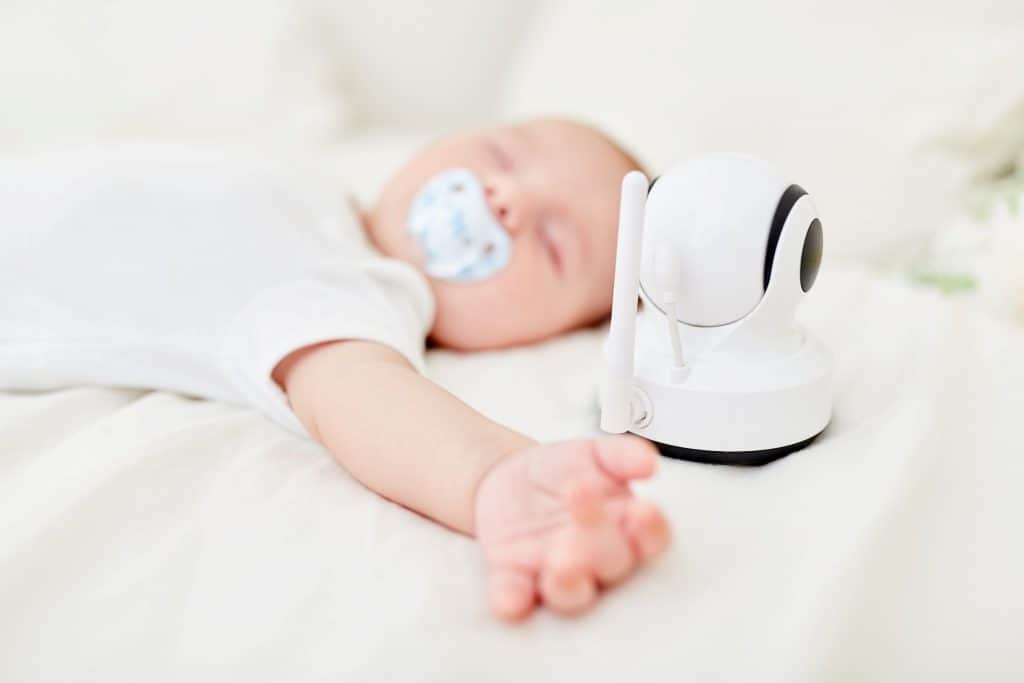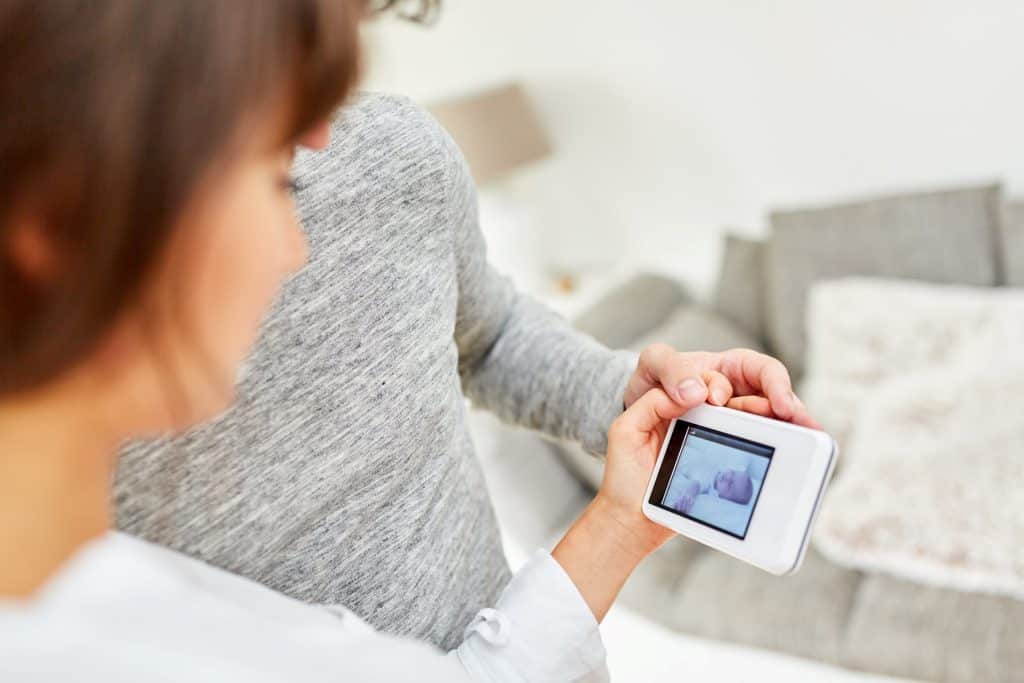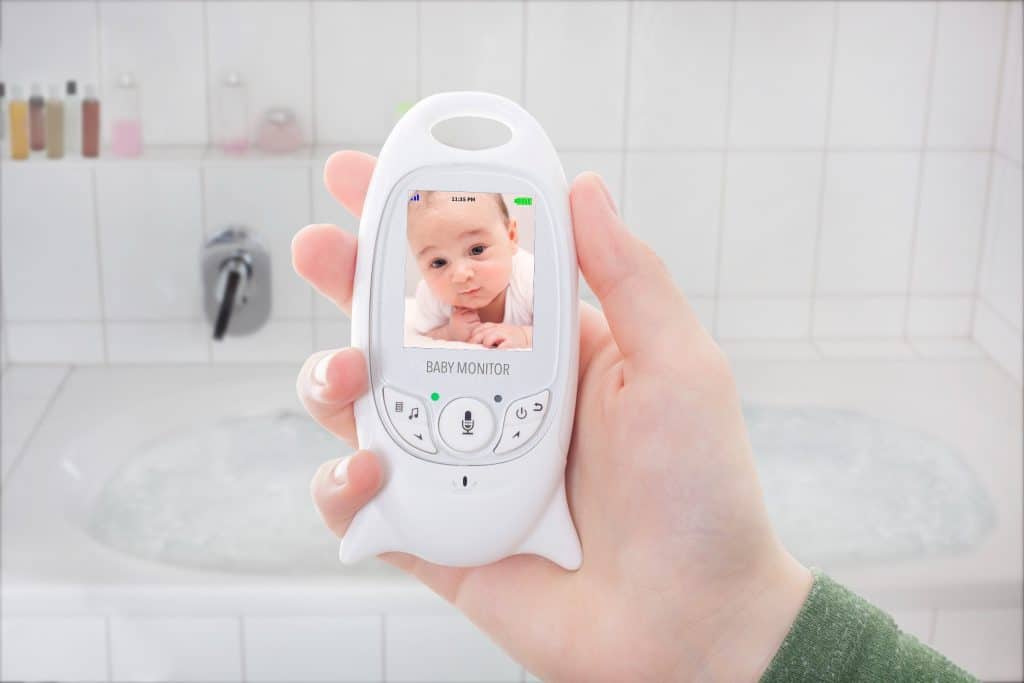Baby monitors are a crucial part of most parents’ caretaking kits – especially for people who find themselves constantly occupied by other tasks. They provide parents with real-time information about their baby’s situation, which is especially crucial early on in an infant’s life.
Over time though, other factors make their constant use less appealing. Discerning when exactly that time comes is tricky – especially considering the many factors that can sway that decision in either direction, along with the unique circumstances some families have to deal with.
In most cases, you can stop using a baby monitor for your child as early as the six-month mark! Not many people do that though – the average family tends to keep them around until the child reaches four years old. Past five years of age, the baby monitor will very likely be wearing out its welcome, barring a few niche circumstances.
Baby monitors are a useful tool, but there’ll come a point in your child’s life where they end up doing more harm than good. We’ll go over a few key signs indicating just that down below.
When to Stop Using Baby Monitor

In general, it’s recommended to keep using baby monitors until your child passes six months old. This is the absolute minimum, as it’s generally the point where their sleep schedules stabilize.
Prior to that point, they’ll suffer from intermittent sleep cycle interruptions. These can leave your infant crying out abruptly in the dead of night, demanding your full attention as caregiver. Baby monitors allow you to respond to this, so make sure you always have one ready in their room.
Once their sleep cycle normalizes, you could very well stop the baby monitor use then and there! Most parents choose not to – this could be due to simple parental anxiety or existing considerations that alter the situation.
The stopping point of baby monitor usage is usually around the four-year mark. Past this, your child has likely caught onto the fact they’re being observed. This information tends to alter their perception, in turn making them modify their behavior and sleep schedule to accommodate.
This change is usually for the worst in these cases, leaving babies growing up guarded, reserved, and self-conscious of any actions they take in that monitored environment.
Think of it this way: imagine that every time you coughed, someone would walk in on you to check how you were doing. Even if the response is caring or altruistic in nature, it would still make you – at a minimum – extremely occupied with the consequences of your actions.
If this continues, your baby might develop anxiety from this constant observation. Don’t take that risk and stop using baby monitors past this point, if at all possible.
Babies deserve your attention and care – not your scrutiny. They don’t need to feel watched all the time, and letting this behavior persist could hamper their development in the long run.
Why You Might Move It a Little Earlier (Or Later!)
While four years is a solid benchmark to stop using baby monitors, it’s still just a general guide. You need to take contextual cues into consideration when deciding when to drop this tool from your caregiving arsenal.
Discarding it too early would be a risk factor, but doing so too late would leave your child in an uncomfortable position. Balance is key, so consider your family’s unique situation carefully.
Move it a little earlier if…
You might be able to stop baby monitor general use if you’re constantly within earshot of your child’s room. This is more common in smaller houses, but being a room or two away from your child – even if you’re working – will often be close enough for you to pick up on their duress.
Make sure you test this first, as you really don’t want to trust your baby’s health in your own confidence alone.
This might also be subject to change depending on how your infant acts. If your kid often behaves safely and sensibly, it might be fair to drop the baby monitor observation earlier than most other parents would. A sensible kid this early on is extremely rare, so don’t take your luck for granted!
Sleep Cycle Struggles
Sleeping issues could also be a notable reason for why you ought to leave them be. Baby monitors lead to more walk-in responses from concerned parents, which in turn produce more disruptions to everyone’s sleep cycles.
Overly relying on your baby monitor might get you barging into their room in a panic multiple times a day! Restful sleep is crucial for a growing child, so never let your own anxieties get in the way of that – even if you’re acting out of concern. How else would they grow healthier?
Your child might also be bothered by the lack of privacy. They could end up subduing their own behavior, even while under duress. This outcome is more likely if you have a habit of barging into their rooms at the slightest hint of a potential cause for concern.
In this case, it’d pay to set the monitor dial to a less sensitive screening setting.
Cause for Anxiety
Finally, drop the baby monitor use earlier if it’s becoming a distraction. Baby monitors are meant to safeguard wellbeing, but too much usage of them will simply cultivate anxiety – on everyone’s part!
Parents will end up glued to the monitoring app, which now ends up serving to further their anxiety. It would also distract them from other tasks such as work or household chores.
The children being observed would learn to be uneasy with any action they take, which would only get further reinforced by the bombardment of interruptions their sleep cycle would take.
Move it a little later if…
On the other hand, you can put off retiring the baby monitor if you find it tough to hear your child crying out. This could be due to room distance, workload distractions, or one simply having a less reliable sense of hearing.
Younger babies need to be attended as they might randomly wake in the middle of the night. If they can make it the night with minimal fuss, you can safely drop the baby monitor usage.
It’s also worth keeping the baby monitor around if your child is coping with either serious medical issues or health-risking behavior. For instance, if your baby is known to randomly vomit at night, make sure you’re first to know – keep the baby monitor close by their bed!
Responsiveness is key for urgent health risks – especially for infants who aren’t in a position to call for assistance on their own. This also extends to fevers, chills, and other illnesses that can weaken their constitution and general wellbeing.
Multiple Kids
Some families may also have more than one child in a given room. Most of the time, these kids will have a slight age gap – and it can reach the point where one child would outgrow the baby monitor a lot earlier than the other!
While your older kid won’t appreciate the idea very much, it’d be best to play it safe and keep the baby monitor around for the sake of their sibling.
Hopefully, they’ll learn to sleep through those alarms.
In the event that they can’t, it would be wiser to relocate your older kid somewhere else.
Setting aside a different room for them to sleep in ensures minimal disruption and anxiety from baby monitor observation. At a minimum, you could have them sleep in your room instead.
Be considerate to them – checking in on your little one throws off everyone’s sleep cycle. If this behavior persists, it could compromise your older child’s health and sense of security!
Recklessness
Lastly, keep the baby monitor around longer if your child has a habit of reckless behavior – especially if it’s known to get worse once your child is unsupervised.
Babies love exploring the world, but will rarely be equipped to handle the consequences derived from the more dangerous actions. If they have a habit of acting out this way, make sure you’re keeping a charged baby monitor on standby to alert you the minute things go awry.
Find a Balance Between Safety and Privacy

Baby monitors are there to provide you with objective information and peace of mind, but such a tool can easily do the opposite – rendering observers anxious and paranoid with all the information being fed to them. It’s very easy to lapse into this paranoia, especially for overthinkers.
Remember that too much usage of this tool will be stress-inducing for both you and your child. While being able to intervene at a timely moment is great, the constant intrusions this brings on (especially with false alarms!) will hamper the entire household’s sleep schedule.
It may help to gradually turn up the minimum volume threshold as your baby ages. Doing this lets you filter out less urgent sounds, allowing you to divert focus towards more pressing concerns.
We’d recommend doing the above once your baby either hits the six-month mark or can finally sleep through the night – whichever point happens to come first.
Sleep Regression
Baby monitors are crucial to observing cases of sleep regression. Sleep regression refers to the abrupt disruption of sleep cycles babies can experience, which tends to come from rapid changes.
This commonly comes from sudden cognitive developments (i.e. learning to repeat words), physiological changes (i.e. growth spurts), or things that would jostle their circadian rhythm (i.e. jet lag, changed nap schedule).
This period of time needs your personal attention to address and can persist for over a month. You might not even notice your baby has this condition without the aid of a baby monitor, so it’s definitely worth busting it out every few weeks to test for this possibility.
Remember You Don’t Have to Dispose of Them Entirely

Just because your child’s baby monitor fell out of daily use doesn’t mean you need to throw them away! While you can generally stop with the baby monitor usage at around the four-year milestone, it’s always good to keep it tucked away somewhere safe for future situations.
You can bring them out if you find your family moving somewhere new, as the added communication channel can help make up for your lack of familiarity with the venue.
You could also use this while your baby is feeling unwell. Alternatively, you could also use it if you suddenly find yourself occupied in ways that severely limit your parenting capability (i.e. handling guests, severe fatigue). It’s a reliable tool that lets you compensate for the days when you aren’t at your best.
Even if your current child is already past the age to warrant baby monitor use, who knows what the future holds?! Even if your home isn’t surprised by a new family member, you could repurpose the tool to watch your pets, track household pests, or even act as a home-brew security system!
Final Thoughts
Baby monitors are a great help for parents, allowing them to keep tabs on their kids and rapidly respond when needed. You’ll have to drop their usage at some point, but determining when you ought to can be tricky to discern.
Early on your child’s immediate safety is the priority, but eventually, it’ll be time to give their privacy its due importance and stop using the baby monitor regularly. It’s up to you to decide when exactly that age would be – we hope you take all the above considerations into account!